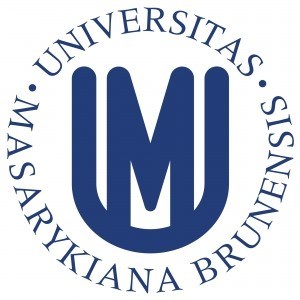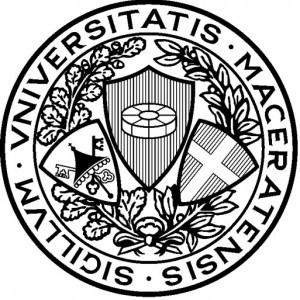Photos of university / #uniessex
The Bachelor of Arts in Economics and Politics at the University of Essex offers students an in-depth exploration of two interconnected social sciences, equipping them with the analytical skills and theoretical knowledge necessary to understand and address complex economic and political issues in the contemporary world. This interdisciplinary program is designed for students who are interested in how economic theories influence political policies and, conversely, how political decisions impact economic systems on a national and global scale. Throughout the course, students will examine a broad range of topics, including macroeconomic and microeconomic principles, international trade, development economics, political theory, comparative politics, public policy analysis, and international relations. The curriculum combines rigorous quantitative and qualitative methods, fostering critical thinking, empirical research capabilities, and a nuanced understanding of economic and political contexts. Students will have the opportunity to engage with current debates on economic inequality, globalization, climate change, governance, and human rights, preparing them for diverse careers in government, international organizations, think tanks, NGOs, finance, journalism, or further academic study. The program emphasizes practical skills such as data analysis, policy evaluation, and effective communication, which are essential for influencing decision-making processes and implementing impactful policies. With access to experienced faculty members who are active researchers and practitioners in their fields, students benefit from a stimulating academic environment that encourages intellectual curiosity and critical engagement. The University of Essex’s vibrant campus, combined with its strong focus on employability, ensures that graduates of the Economics and Politics program are well-prepared to contribute meaningfully to society, whether in analysis, policymaking, or leadership roles. Moreover, opportunities for internships, study abroad programs, and collaborative projects enrich the learning experience, providing valuable real-world insights and professional development. Graduates will emerge with a comprehensive understanding of the interconnectedness of economics and politics, along with the analytical tools necessary to analyze current issues, formulate policies, and advocate for effective solutions in an increasingly complex world.
The Economics and Politics programme at the University of Essex offers students a comprehensive understanding of the interconnected worlds of economic theory, political analysis, and public policy. This interdisciplinary degree is designed to equip students with the analytical skills necessary to navigate complex socio-economic issues facing societies today. Throughout the course, students explore core concepts in microeconomics and macroeconomics, developing a solid foundation in economic principles, quantitative methods, and data analysis. They also examine key political theories, institutions, and systems, gaining insights into how political processes influence economic policies and societal outcomes. The programme emphasizes critical thinking, research skills, and real-world applications, preparing graduates for careers in government, international organizations, think tanks, journalism, and beyond. Students will have opportunities to undertake practical projects, internships, and fieldwork, enabling them to apply theoretical knowledge to practical challenges. Additionally, the programme encourages an understanding of global issues such as inequality, development, environmental sustainability, and governance. With a diverse curriculum that combines lectures, seminars, group discussions, and independent research, students develop a multidisciplinary perspective vital for understanding the complex relationship between economics and politics. The programme also offers flexible study options, including optional modules and electives, allowing students to tailor their education to specific interests. Dedicated academic staff with expertise in both disciplines guide students through their studies, fostering an engaging learning environment. Upon graduation, students will be well-equipped with analytical tools, critical insights, and practical experience to pursue further academic study or a wide range of professional careers in public, private, or non-profit sectors. The University of Essex’s strong links with policy institutes and industry partners provide valuable networking and employment opportunities, ensuring students are prepared for successful careers in a dynamic global landscape.
Entry requirements typically include A-levels or equivalent qualifications, with specific grade requirements varying by year. Applicants generally need to demonstrate proficiency in English, such as an IELTS score of at least 6.0 or equivalent. A-level subject requirements may include passes in relevant subjects such as mathematics and economics or politics, depending on the specific course variants. The university also considers UCAS points, with competitive scores often in excess of 112 points, which can be achieved through a combination of high grades in A-levels or equivalent qualifications. International applicants are required to provide evidence of their academic credentials and English language proficiency, and may need to meet additional visa and eligibility criteria. The program may also value relevant extracurricular activities, personal statements demonstrating interest in economics and politics, and references from previous educators. Applicants are encouraged to meet the standard qualifications and demonstrate strong analytical, quantitative, and communication skills to succeed in this interdisciplinary program. In terms of admissions assessment, shortlisted candidates may be invited for an interview or to undertake submission of a personal statement or motivation letter. The program aims to select students who show a keen interest in understanding economic policies, political systems, and their interrelations, alongside the ability to conduct independent research and critical analysis. The faculty reviews each application holistically, considering academic achievements, relevant experience, and personal attributes. Mature students or those with non-standard qualifications are encouraged to contact the admissions office for tailored advice. The program adheres to the university’s standards for admission, ensuring that selected students are well-prepared for the academic challenges and opportunities provided by the course.
The University of Essex offers various financing options for students enrolled in Economics and Politics undergraduate programmes. Tuition fees for domestic and international students may differ; domestic students typically benefit from lower fee rates, with current figures published on the university’s official website, while international students often pay higher fees. The university provides several scholarship opportunities, including merit-based awards, bursaries for specific demographics, and scholarships for students from different regions. Applicants are encouraged to check the university’s scholarship portal for detailed eligibility criteria and application procedures.
In addition to scholarships, students can explore government-funded loans and grants available in the UK, such as student loans from Student Finance England, which cover tuition fees and living costs, subject to eligibility. The university also provides advice and support services for students seeking part-time work opportunities, which can help offset living expenses. Essex has partnerships with local businesses and organizations offering paid internships and work placements related to Economics and Politics, contributing to students’ financial stability during their studies.
For international students, the university offers guidance on visa-related financial requirements and may assist with bursaries or grants designed specifically for international applicants. Payment plans are available to spread tuition fee payments across several installments, easing financial burden over the academic year. The university also provides information on external funding sources, including charitable foundations and external scholarship programs, which prospective students can apply for independently. Overall, students enrolled in the Economics and Politics programmes should utilize the comprehensive financial advice and resources provided by the University of Essex to manage their study costs effectively and plan their finances throughout their university life.
Economics and Politics at the University of Essex offers students a comprehensive understanding of two key social sciences that are essential for analyzing contemporary issues in governance, economic policy, international relations, and society. This joint honours degree programme is designed to develop students' critical thinking, analytical skills, and knowledge in both disciplines, enabling them to interpret complex political and economic phenomena with a multidisciplinary approach.
The Economics component of the programme provides students with a solid foundation in microeconomics, macroeconomics, econometrics, and quantitative methods. It explores subjects such as market structures, economic development, fiscal and monetary policy, and international trade. The Politics component covers UK politics, comparative politics, international relations, political theory, and policy analysis. Students examine political institutions, electoral systems, international organizations, political ideologies, and policy-making processes across different contexts.
The curriculum is structured to balance theoretical concepts with practical applications. Students undertake modules that include case studies, data analysis, and research projects, fostering skills relevant to careers in public policy, analysis, diplomacy, and economic consultancy. The programme also emphasizes the importance of understanding global challenges such as inequality, climate change, and technological change from both political and economic perspectives.
Students benefit from the university's strong links with policy-making bodies, government agencies, and international organizations, providing opportunities for placements, internships, and networking. The university's research centres and academic staff are actively engaged in contemporary debates, ensuring that the curriculum remains relevant and rigorous.
The programme prepares graduates for a wide range of careers, including government, international organizations, NGOs, banking, consulting, journalism, and further academic study. It also provides a pathway for students interested in pursuing postgraduate qualifications in economics, politics, international relations, or related fields.
In terms of assessment, students are evaluated through a combination of essays, presentations, examinations, and research projects, encouraging both independent scholarship and collaborative work. The programme's structure allows students to develop both specialised and interdisciplinary skills, equipping them with the analytical tools needed to understand and influence the world.
Overall, Economics and Politics at the University of Essex offers an intellectually stimulating environment where students can explore pressing social issues from multiple perspectives, preparing them for active engagement in the political and economic spheres of global society.









